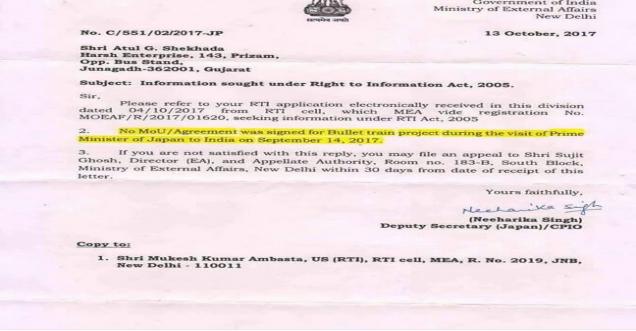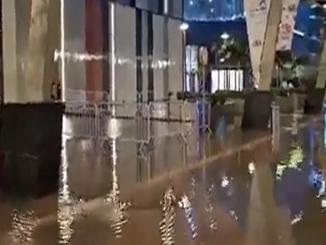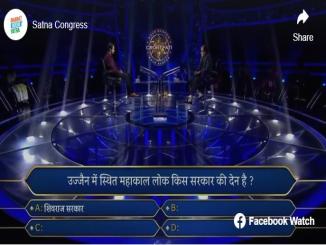
Viral Message:
Modi Govt didn't sign any MoU for Bullet Train with Japan, reveals an RTI. See, I told you, PM was never serious about Bullet Train, it was all just for the show-off !!
E Message on – Social media and internet
Fact Check by Ayupp– Fake information being spread, the MOU was signed in 2015
Viral Message Example
Modi Govt didn't sign any MoU for Bullet Train with Japan, reveals an RTI.
— Gaurav Pandhi (@GauravPandhi) November 16, 2017
See, I told you, PM was never serious about Bullet Train, it was all just for the show-off !! pic.twitter.com/jXuKXy2T9c
Is it true ? RTI reply says, no MoU or Agreement with Japan on Bullet Train . PM Modi can do anything to win Gujarat ? pic.twitter.com/Zmm0KxRu6o
— Shakeel Ahmad (@Ahmad_Shakeel) November 17, 2017
Viral Message Verification – Fake message being spread on twitter and other social media. Actually the MOU was signed two year before the date as claimed of no MoU signed. Going by the PIB report on the link.
India and Japan have signed an MoU on 12th December, 2015 on cooperation and assistance in the Mumbai – Ahmedabad High Speed Rail Project (referred by many as Bullet Train project). The two countries have also entered into two comprehensive technological cooperation agreements on 11th December 2015, for modernization and upgradation of Indian Railways.
These agreements have been signed during the official visit to India of His Excellency Mr. Shinzo Abe, the Prime Minister of Japan, during December 11 – 13, 2015.
1) MoU between India and Japan on cooperation and assistance in the Mumbai – Ahmedabad HSR Project
India and Japan have signed an MoU on 12th December, 2015 on cooperation and assistance in the Mumbai – Ahmedabad High Speed Rail Project (referred by many as Bullet Train project). Japan has offered an assistance of over Rs.79,000 crore for the project. The loan is for a period of 50 years with a moratorium of 15 years, at an interest rate of 0.1 per cent. The project is a 508 Kilometer railway line costing a total of Rs. 97,636 crore, to be implemented in a period of seven years. It has been agreed that Shinkansen Technology will be adopted for the project. The cooperation of Japan will be fixed on transfer of technology and “Make in India”. Japan will assist India in training of personnel for HSR.
2) Memorandum of Cooperation (MoC) between Ministry of Railways and MLIT, Japan on technological cooperation
Areas of cooperation:
(a) Railway Safety;
(b) Rolling stock including train sets/EMUs;
(c) Information sharing for station development and land value capture;
(d) Information sharing for environment friendly sanitation technology in trains
(e) Signalling and telecommunication;
(f) Railway Electrification;
(g) Civil structure and railway track system;
(h) Train control system;
(i) Mitigation of natural disasters;and
(j) Any other areas jointly determined by both Sides within the scope of this MoC.
3) MoU on technological cooperation between RDSO and Railway Technical Research Institute Japan
The main directions of cooperation between the Parties shall be the development of rail-related technical cooperation in which the Parties may have mutual interest, performance of consultation and other services,
The broad areas of technical cooperation may include:
(i) Safety in train operation;
(ii) Advanced techniques of maintenance;
(iii) Use of environment friendly technologies;
(iv) Throughput enhancement measures; and
(v) Any other area jointly agreed upon by the Parties
Specific projects under the above cooperation areas and modalities of cooperation will be jointly discussed and decided by the parties.
Background
Union Railway Minister Shri Suresh Prabhu had wide-ranging discussions on various aspects of railways - covering modernization, safety and technology upgradation of Indian Railways - during his visit to Japan in September 2015. He held discussions with the concerned Ministers of Japan and met Prime Minister Shinzo Abe. On the investment requirements of Indian Railways, he had discussions with leading financial institutions and investment bankers and explained to them the 5 year USD 140 billion investment plan of Indian Railways. He had discussions with Pension Funds as well, to seek their investments in the Railways. Another focus was the Technology upgradation of Indian Railways through cooperation of Research Designs and Standards Organization (RDSO) of India and the Japan Railway Technical Research Institute (JRTRI), both key railway research organizations.
The comprehensive technological cooperation as envisaged in the above Memorandums are the result of the above discussions and follow-up.
http://pib.nic.in/newsite/PrintRelease.aspx?relid=133138



























